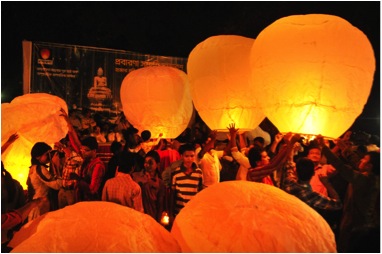by Rahnuma Ahmed
SUPREME Court lawyer Barrister Jyotirmoy Barua, 39, initiated a writ petition immediately after the violent attacks of September 29, 2012 when innumerable Buddhist monasteries, temples and houses in Ramu, Cox?s Bazar district, were set on fire, pillaged and looted by Bengali Muslim men, mostly youths. The attackers included both locals and outsiders, angered at the news that a picture defaming the Holy Qur?an had been discovered on a Buddhist youth Uttam Kumar Barua?s facebook account. Investigative reports reveal that the allegations against Uttam were manufactured since the picture had been tagged to his account; credible news reports also reveal that the attacks were pre-planned and pre-meditated, a view subscribed to by both the ruling party and the major opposition party, who, however, blame each other for the attacks.
Jyotirmoy Barua returned to Bangladesh last year after completing his Bar-at-Law; he lived in the UK for nearly nine years, partly financing his studies as karate instructor. He has filed the writ on the basis of being personally ?aggrieved? since he belongs to Ramu. It challenges the ?inaction? of the police; hearings have begun.
The interview is based on transcripts of recorded conversations held with Barrister Jyotirmoy Barua on four different occasions totaling more than fifteen hours. I am grateful to him for having taken me into his confidence, for having gone through the draft and suggested modifications.
